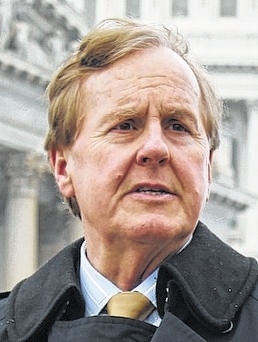In the wake of 9/11, new laws and regulations were put in place to crack down on terrorism-related financing in the U.S. financial system.
Finding their previous pathways blocked, terrorists and other criminal organizations have moved their illicit finance operations to new venues, including partnerships with Latin American drug lords.
We must take action to block this emerging threat. As vice chairman of the Financial Services Committee Task Force to Investigate Terrorism Financing, I helped lead a Congressional hearing earlier this week examining how Latin American criminal organizations and terrorist groups work together to fund their acts of evil.
News reports indicate Iran, Hezbollah and other illicit financiers remain active in Latin America, and our Task Force is concerned that criminal money laundering capabilities will continue to grow in the region without U.S. expertise and countermeasures.
The “tri-border region” of Argentina, Brazil, and Paraguay, in particular, remains a prime area for money laundering, drug trafficking and other cross-border criminal behavior. In April, I helped lead a Congressional delegation to this region and we found no law enforcement activity.
Latin America accounts for nearly one-third of the State Department’s global list of major money laundering countries. With our southern border so porous, it’s particularly important to keep close watch on illicit activity in Latin American countries and assist them in bringing these activities to a stop.
From both the Congressional delegation and this week’s hearing, it’s clear we have strong allies who understand our challenges and concerns with terrorism financing in Latin America.
However, as the expert panel from this week’s hearing explained, many of these Latin American countries face serious challenges, including limited technology, training, and inadequate criminal justice systems.
We must work with them through our government agencies and the private sector to enhance support systems to identify and cut off the flow of money used to finance acts of terrorism. As stated by the President of Argentina’s Financial Intelligence Unit, Mariano Federici, terrorists do not need to be in any specific country to utilize its financial networks.
To help advance efforts to intercept terrorism financing, I will host the fourth Parliamentary-Intelligence Security Forum next week in Vienna. More than 120 Members of Parliament and other high-ranking officials from 29 countries around the world will meet with U.S. officials and relevant experts to discuss joint efforts to combat terrorism financing, cyberwar, terrorism and other security issues.
THIS WEEK IN WASHINGTON
This week the U.S. House of Representatives officially denounced President Obama’s proposed $10 tax on every barrel of oil. More taxes and higher gasoline prices are not what hardworking American families need amid the weakest economic recovery on record. As your Congressman, I will continue to fight President Obama’s tax and spend agenda.
This week I agreed to co-sponsor two bills to help struggling rural hospitals. A recent UNC study found 74 rural hospitals nationwide have closed since 2010, including three in North Carolina. One piece of legislation expands access to federal grants for hospital improvement projects while the other would stop potentially harmful cuts from being implemented due to North Carolina’s decision to not expand Obamacare.
You know the story of Monroe Navy veteran Garland Denny, who dedicated the final years of his life to advocating for a special postage stamp to raise money for veterans services. This week, I secured official support from Secretary of Veterans Affairs Robert A. McDonald, who kindly sent a letter to Postmaster General Megan J. Brennan in support of Mr. Denny’s “Stamp Out PTSD” semi-postal stamp proposal. Just last month, I was able to secure support from 128 Members of Congress for a similar letter to the Postmaster General.
U.S. Rep. Robert Pittenger, R-Charlotte, represents North Carolina’s 9th Congressional District, which will include Anson County next year under state redistricting maps.

